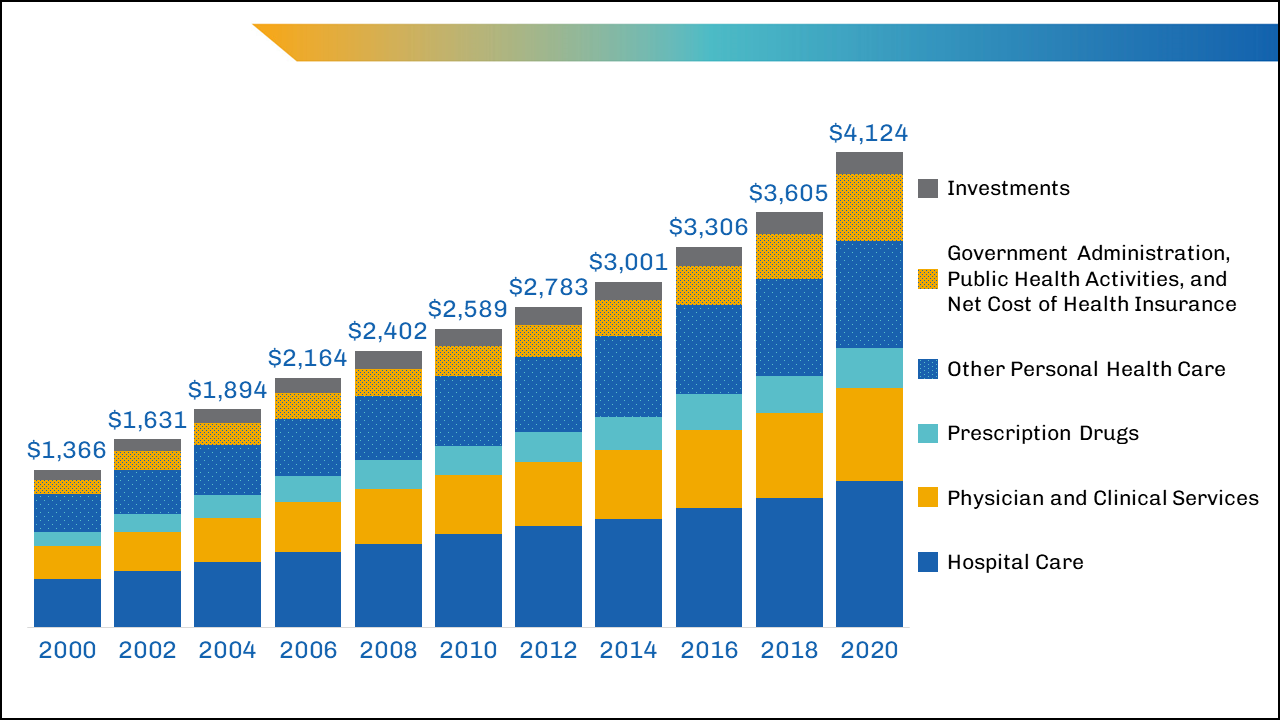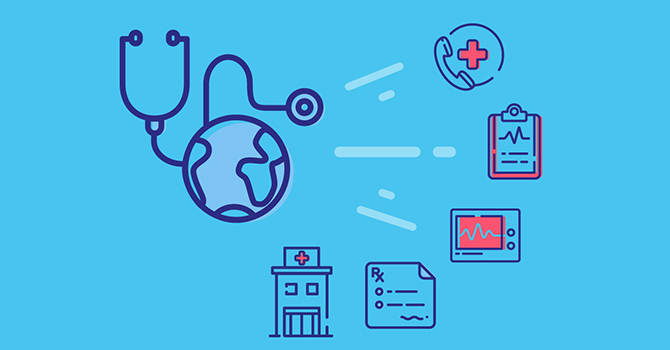The Importance of Healthcare RCM in Enhancing Cash Flow and Performance
The Importance of Healthcare RCM in Enhancing Cash Flow and Performance
Blog Article
A Comprehensive Overview on Exactly How Medical Care RCM Functions to Simplify Billing and Collections
Navigating the complexities of health care income cycle management (RCM) is crucial for providers intending to improve their billing and collections processes. The overview unloads the complexities of RCM, from individual enrollment to accounts receivable management, providing understandings into maximizing each step.
Recognizing Revenue Cycle Administration
Grasping the complexities of Income Cycle Management (RCM) is crucial for healthcare companies intending to enhance their monetary performance. RCM is an essential administrative function that includes the entire monetary process of individual care, from the preliminary visit establishing to the final repayment of the balance. It is a complicated treatment created to determine, accumulate, and manage the earnings from the services offered to patients. Reliable RCM ensures that healthcare carriers get prompt and accurate repayments, reducing the danger of earnings loss and improving cash circulation.
The RCM procedure begins when an individual timetables a visit and prolongs with the client's care trip, including billing and collections. An essential goal is to lower the time in between obtaining and providing a service settlement, thus enhancing the organization's financial health. RCM involves various functions such as client registration, insurance policy confirmation, charge capture, coding, asserts submission, settlement publishing, and taking care of rejections and allures.
Trick Elements of RCM
In the world of Income Cycle Administration (RCM), comprehending its key components is basic to achieving monetary performance within medical care companies. RCM is an extensive procedure that encompasses different phases, each critical to making certain reliable payment and collections. The main elements include individual registration, insurance policy confirmation, cost capture, coding, case entry, payment uploading, and receivable monitoring.


When coded, cases are submitted to payers, where accuracy is paramount to avoid hold-ups or denials - Healthcare RCM. Repayment publishing entails videotaping the obtained settlements, which enables the settlement of accounts. Last but not least, receivables monitoring concentrates on monitoring and attending to unsettled insurance claims, making sure timely follow-up and resolution
Each component of RCM is interconnected, and inefficiencies in any part can disrupt the whole cycle. Consequently, understanding these components is crucial for medical care providers to maximize earnings and improve their monetary health.
Strategies for Reliable Invoicing

Standardizing invoicing procedures across the organization is one more crucial approach. Developing clear standards for paperwork, coding, and submission assists keep consistency and compliance with governing demands. Training team routinely on these procedures guarantees everyone is current with the most recent modifications in billing codes and payer plans.
Precise cost capture is necessary in stopping income leak. Carrying out regular audits and surveillance systems enables the identification and modification of inconsistencies prior to they influence income. Furthermore, maintaining open lines of communication with payers aids to swiftly solve any kind of disputes or misconceptions that may develop.

Lastly, engaging patients early in the payment procedure by supplying clear estimates and educational products regarding their financial responsibilities can considerably minimize confusion and boost settlement timeliness. These approaches collectively add to an extra economically healthy and effective billing system.
Enhancing Collections Processes
A robust collections process is crucial for maintaining monetary security within healthcare companies. Provided the intricacies of medical invoicing and the selection of payer requirements, enhancing the collections process entails applying tactical procedures that make sure precise and prompt payment of solutions provided. Central to this is making use of innovation to automate and streamline processes, boosting and reducing hands-on errors performance. Automation devices can assist in tracking claim conditions, sending out prompt pointers to individuals, and managing denials a lot more efficiently.
Clear and transparent individual communications are critical. Offering comprehensive descriptions of fees and offering versatile discover this info here settlement plans can increase client contentment and punctual payments.
Normal audits of the collections procedure should be carried out to identify areas for renovation and make certain compliance with regulations. By examining information, health care organizations can determine fads, prepare for potential concerns, and adapt approaches appropriately (Healthcare RCM). Inevitably, a well-enhanced collections process not only sustains financial health and wellness but also contributes to a much more seamless experience for clients and staff alike
Optimizing Earnings Streams
Building upon the structure of a next strong collections process, medical care organizations can further strengthen their financial security by tactically optimizing profits streams. This includes a multi-faceted strategy, starting with a detailed analysis of existing revenue resources to identify inefficiencies and locations for development. Employing advanced data analytics devices allows companies to obtain insights into payer mix, client demographics, and service use patterns, permitting for data-driven decisions that boost earnings capture.
Applying automated billing systems can considerably reduce errors and accelerate insurance claims refining, making certain that earnings is accumulated more efficiently. Furthermore, optimizing payer contracts through regular negotiations can improve repayment prices and terms, straight affecting the bottom line. Branching out service offerings, such as integrating telehealth or health care, can likewise draw in a wider person base, thus raising earnings possibility.
One more important element is improving client engagement and fulfillment, as pleased patients are more most likely to stick to treatment strategies and make timely payments. Supplying versatile payment alternatives and clear billing techniques can enhance collections and foster individual commitment. Healthcare RCM. By embracing these methods, health care organizations can develop an extra resilient monetary structure, making sure sustained development and stability in an ever-changing sector landscape
Final Thought
Finally, Related Site medical care Profits Cycle Management (RCM) plays an essential duty in enhancing billing and collections procedures by integrating crucial components such as patient enrollment, insurance confirmation, charge capture, coding, declares entry, and accounts receivable management. By utilizing innovative innovation, systematizing procedures, and cultivating patient interaction, healthcare providers can dramatically decrease case denials, accelerate repayment cycles, and boost cash circulation. This comprehensive technique to RCM ultimately causes improved economic effectiveness and sustainability for medical care organizations.
The RCM procedure begins when an individual schedules a consultation and expands via the individual's treatment journey, including payment and collections.One more critical element is enhancing individual involvement and complete satisfaction, as satisfied clients are more likely to adhere to therapy plans and make timely repayments. Offering flexible repayment options and transparent billing practices can improve collections and foster client loyalty.In final thought, health care Income Cycle Administration (RCM) plays a crucial role in optimizing billing and collections processes by integrating key components such as patient registration, insurance verification, charge capture, coding, claims submission, and accounts receivable administration. By using advanced innovation, standardizing treatments, and cultivating patient interaction, healthcare service providers can significantly reduce case rejections, speed up payment cycles, and boost money flow.
Report this page